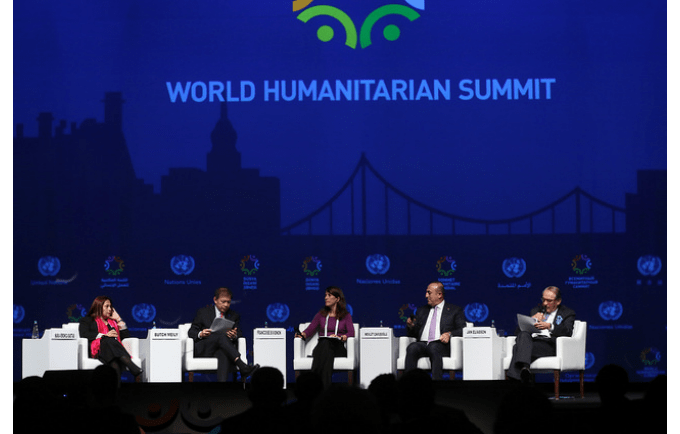ISTANBUL, 24 May 2016–The World Humanitarian Summit concluded here today with a demonstrated resolve to live up to the pledge to leave no one behind, including the more than 60 million displaced, and women, children and other groups in crises. To do so, world leaders and participants from other segments of society committed to ensuring that “the vulnerable receive the global support they deserve to live in safety and dignity,” according to the Summit Chair’s Summary released at the end of the two-day forum.
Summiteers also called for gender equality, women’s empowerment, and for women’s rights to become pillars of humanitarian action.
Resolving for increased action “to enable women and girls to take on roles as leaders and decision-makers,” plans were launched to end tolerance of gender-based violence, with a commitment “to ensure the right to sexual and reproductive health care is fulfilled for all women and adolescent girls in crisis settings.”
Participants emphasized that “humanitarian needs must be met by adequate and predictable financing.” There was also broad support to increase the Central Emergency Response Fund to $1 billion.
All other commitments from about 9,000 participants from 173 countries will be reflected in a Commitments to Action Platform, which will be publicly accessible.
During the Summit, more than 25 humanitarian partners, including UNFPA, the United Nations Population Fund, endorsed a new compact to address young people’s issues in humanitarian response. The Global Compact for Young People in Humanitarian Action seeks to protect the health and development of young people; engage youth in all phases of humanitarian action; strengthen their capacities as effective humanitarian actors; increase resources to tackle the needs and priorities of adolescents and youth; and generate age- and sex-disaggregated data.
Today, half of the 1.4 billion people living in countries affected by crises and fragility are under the age of 20. Many, especially girls and young women, face poverty and exploitation. The compact responds to young people’s demands to be at the centre of humanitarian action.
“Youth participation and leadership should be the rule, rather than the exception. It should be institutionalized in humanitarian processes and policies and explicitly stipulated in operational plans and budgets,” said UNFPA’s Executive Director, Dr. Babatunde Osotimehin. “We can no longer afford to leave young people behind.”


